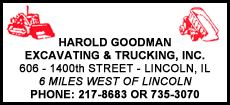 He was part of the 1st Battalion, 40th Field Artillery, and the
group became a band of brothers, standing side by side in whatever
it was that was just around the corner for them. He was part of the 1st Battalion, 40th Field Artillery, and the
group became a band of brothers, standing side by side in whatever
it was that was just around the corner for them.Coers said they
also saw many strange things when they were in Vietnam. In that
country there were classes of people, just as there are in the U.S.,
but how they were treated was somewhat different.
The mountain people were the lowest class. When they would come
into town, they couldn't walk on the same side of the street as the
upper class. If the two classes of people were walking along and saw
each other, the lowly group had to cross the road and walk on the
other side.
He also remembers that the United States sent irrigation pumps to
Vietnam to assist the Vietnamese in pumping water into their rice
paddies. Their native way of doing it was with a bicycle-like
contraption with little buckets. The women would pedal the
contraption, and the buckets would lift water, move it to the rice
paddies and empty it there.

Coers said that when the locals got the pumps, instead of using
them the way they were intended, they kept the women in the fields
and used the pumps to pump water for washing the army vehicles.
And of course, it rained -- every day it rained. Coers remembers
always being wet and sometimes even getting pretty cold. Every
soldier had to do guard duty, doing two hours on the line and then
getting four hours off. Regardless of the weather, that patrol had
to be kept.
When Coers' tour was over, he was put on a ship, and it took 23
days for him to get back to the States.
He laughed as he remembered that the officers on the ship called
him in to report and told him he was AWOL. He said he told them it
was pretty hard for him to be AWOL when he was standing right in
front of them, and they agreed.
However, the problem was he had not gone through the proper
procedure when checking in. They had his name but not his number on
the roster.
His punishment for not checking in correctly was that he had to
serve KP duty for the days they were on ship. For Coers that was a
relief, because it gave him something to do.
"We were 500 guys on a ship, with nothing to do. At least working
in the kitchen kept me busy," he said.

When the ship finally reached the West Coast, Coers said he went
ashore and called Roseann. He told her he was on U.S. soil and
headed home on leave. She told him she was ready then to mail the
wedding invitations.
"I said, 'OK, we'll get married and honeymoon in Fort Hood,'
because I still had 89 days left to serve," he explained.
Coers said the trip home was strange. Soldiers rode the rails to
their various destinations. When they went through towns, they had
to close the curtains on their train cars so no one would see they
were soldiers.
[to top of second column] |

When he reached home, "there was no one there shouting, 'Rah,
rah!' because I was home," he said. "It was just Roseann and her
parents."
And so it was that David Coers lived a part of American history
that no one was proud of. He came home, got married, raised a
family, worked to make a living and put that part of his past behind
him for 40 years. Then one day, the phone rang and everything
changed.
In 2007, 40 years after he was discharged from the U.S. Army,
David Coers got a phone call. He wasn't home at the time, but
Roseann was. When she answered, a voice asked, "Are you the wife of
David Coers who served in the 1st and 40th?" She confirmed that she
was and took a message for her husband to give a call to an old
soldier he hadn't seen or heard from in 40 years.
There was a reunion being planned for the 1st and 40th, and David
soon set out to help find some of his old buddies. In the end he
found four he had been close to and discovered that two others had
died, one in a motorcycle accident and another committed suicide.
Another he was never able to locate.
Of those he found, Gary Long was in Lincoln, Neb; Dave Hushman in
Minneapolis, Minn.; Gary Dickman in Juneau, Alaska; and Wayne
Hopkins in Forest City, Iowa.
Of the five, three are suffering effects of Agent Orange. One has
lost an eye, one has numerous tumors and undergoes monthly
chemotherapy, and the third has heart problems.

When the five reconnected, they determined they would not lose
touch again and made plans to get together once a year. Coers said
he laughed when Dickman, who lives in Alaska, said no one would ever
make that kind of trip just to see him, and he informed him that
they certainly would, and indeed they did.
Coers said the guys have been through a lot. Some of them are
sick from the effects of Agent Orange, some have suffered from
depression, and some have suffered from broken marriages.
But now that they have all found each other, Coers believes it
has been very good for all of them. They talk on the phone on a
regular basis.
Coers laughed and said: "It always happens, when one of them
calls me, within just a very short time, all four of them will call
me."
When the whole group got together at the last reunion, Coers said
about 70 soldiers turned up, many with their wives, and many of them
had the same stories his buddies did.
One thing Coers noted was that almost all of the soldiers he
talked to who were married when they went to Vietnam were not
married soon after they got home. Coers said it's hard to say why,
but maybe it was just that for some of the wives, they couldn't
handle the changes in their husbands.
But on a brighter note, he said many of them also found new
relationships that lasted, and like Coers, many of them believe that
the love and support of their wives and families is what got them
through the aftermath of a war no one cared about and the stigma of
being soldiers no one was proud of.
[By NILA SMITH]
Part 1
David and Roseann Coers in Alaska |